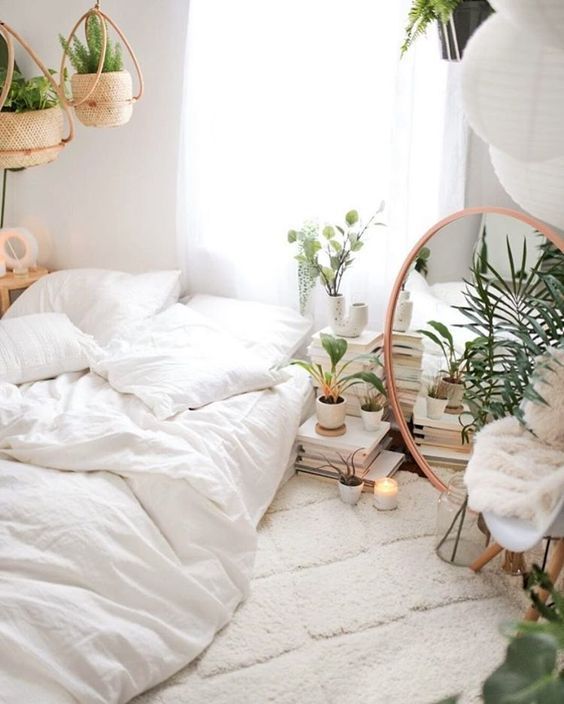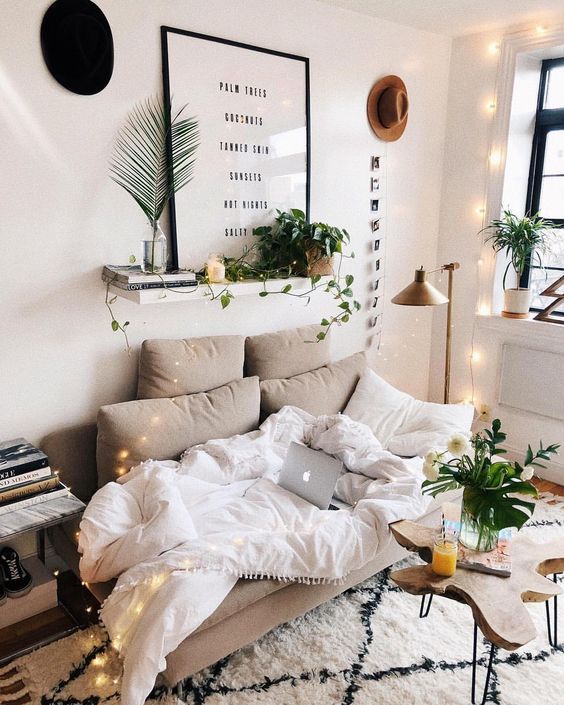Anti-Insomnia Tips You Need To Know
In the United States, approximately eight million people experience symptoms of insomnia every day. For approximately 10 percent of people, the insomnia is chronic. Poor sleep affects all areas of your life. Using a variety of anti-insomnia methods may help you to get the sleep you need to improve your fatigue and overall well-being.
Set the Right Room Temperature
If your room is too cold, you can shiver which prevents sleep. A room that is too hot, makes it hard to get comfortable. The ideal temperature range for your bedroom is 60 to 73 degrees Fahrenheit. Reducing your room temperature decreases your body temperature. When you are slightly chilly, this helps to cause sleepiness. It also promotes greater comfort throughout the night.

Set the Mood for Sleep
About 30 minutes before bed, you want to create an atmosphere that promotes sleep. Turn off the television, eliminate all extra noises and dim the lights. As you continue to do this, your body starts getting used to knowing that these actions mean that it is time to get ready for bed.
You can also use a white noise machine to create a relaxing environment. For some people, turning on a fan will have the same effect. Just make sure to use the low setting on your fan so that it does not get too loud.
Take Advantage of Sleep-Inducing Smells
Certain scents induce relaxation so that you can get comfortable enough to sleep better. There are oil diffusers that you can use in your room at night.
Other ways to use aromatherapy oils include:
- Take a warm bath that has oils in it
- Create a mist that you can spray on your bedding
- Put some oil on a cotton ball and place it under your pillow before going to sleep
Certain oils have been shown to promote relaxation:
- Lavender: Lavender is the most commonly used scent for sleep. One study showed that lavender can reduce anxiety and help with sleep quality. This oil does not appear to be sedating. Instead, it seems to calm the mind and body so that you are able to fall asleep.
- Cedarwood: Cedarwood has been shown to induce sleep. One of its primary components is cedrol. Cedrol has a sedative effect when it is inhaled. Some research shows that cedarwood may help people to sleep longer.
- Bergamot: Bergamot is a relaxing fragrance. When it is present in your room when you are sleeping, it may help to improve your sleep quality.
- Vanilla: Vanilla is a sweet scent. It may make you less restless, so that it is easier to relax when it is time for bed. It also has a soothing and anti-anxiety effect, so that you are not staying awake with thoughts racing through your mind.
- Rose: The scent of roses has a calming effect on the mind and body. It has a stress-reducing effect that can make it easier to fall asleep, especially when you are experiencing a stressful event in your life.
- Jasmine: Jasmine is a sweet floral scent. It may reduce anxiety to reduce the risk of insomnia related to stress. It may also decrease restlessness and improve sleep quality so that your sleep is more restful.
- Sandalwood: Sandalwood is an earthy scent that can have sedative effects. Some people report that this scent helps to alleviate their anxiety, especially at night when they are trying to sleep. It may also increase how much sleep you are able to get each night.
Use Sleep Hygiene
Sleep hygiene allows you to get your body into a schedule. This ensures that your body is ready for sleep at certain times and ready to be awake at certain times. It helps to ensure a normal circadian rhythm, which is your body’s internal clock.

Ally Olson from Vision Bedding says that one way to combat insomnia is to wake up at the same time every morning, which will help set your body’s circadian rhythm.
The first element of sleep hygiene is establishing a bedtime that you will use seven days a week. You should also wake up at the same time in the morning. Even if you cannot fall asleep easily, you should stay in bed once you get to your bedtime so that you can start training your body to know that this specific time is when it should fall asleep.
Make sure that you wake up at the same time every morning, even if you could not fall asleep quickly. Ideally, you want to aim for seven to nine hours of sleep each night. When you are planning your sleep schedule, keep this in mind.

Eliminate Distractions
When you are sleeping, you want your environment to be dark and quiet. Anything noisy or bright serve as a distraction. Even if you fall asleep quickly, noise and light can prevent your body from falling into the deeper, restorative cycles of sleep.
You should turn your clock around so that you cannot see it. The light it emits and constantly seeing the time can make it harder for you to fall asleep.
Consider an eye mask so that you can block out the light. Just make sure that it is not too tight, or this can make you uncomfortable.
Thoughts can be another major distraction when it comes to sleep. If you have something weighing on your mind, write it down before you get into bed. This can help you to remove the thought so that it is not distracting your body from sleep.
Keep your cell phone away from your bed. It is tempting to grab it when you cannot fall asleep. The bright light and activities on your phone can be stimulating which can prevent you from falling asleep.
Perform Relaxation Exercises
Relaxation exercises are a way to alleviate stress and prepare your body for sleep. They help you to relax your body and mind. There are several options, so experiment with different ones to see which help you the most when it comes to promoting sleep.
Yoga is a type of relaxation exercise. It allows you to stretch your muscles and focus on your breathing. Both of these can alleviate tension so that you find it easier to relax at bedtime. There are dozens of free resources online where you can learn some of the best beginner poses.
Progressive muscle relaxation is enough option. For this exercise, you focus on tensing a specific muscle in your body for 10 seconds and then focus on relaxing it for 10 seconds. Start at your toes and move up to your head to do this.
Guided imagery is a type of mind game that can promote relaxation. Let your mind show you something that you find relaxing and peaceful. For example, if you find the beach relaxation, visualize a beach with gentle waves lapping at the shore in your mind.
Eat the Right Foods
Certain foods keep you awake, and others can promote sleep. Caffeine is a major disrupter of sleep. Avoid caffeine in six to eight hours before going to bed. Remember that chocolate also contains caffeine, as well as coffee, soda and a variety of teas.
Simple carbohydrates and sugar also keep you awake at night. Foods that contain these can spike your blood sugar, which can keep you awake. These foods also cause you to wake up feeling hungrier than you would if you avoided them.
The following foods are ideal for nighttime snacks since they may promote sleep:
- Almonds contain magnesium and are a source of melatonin, both of which help with sleep
- Turkey promotes sleepiness which may help you to fall asleep due to containing tryptophan
- Chamomile tea has been shown to improve sleep quality and promote sleepiness
- Kiwi may help you to sleep through the night and get better sleep quality due to this fruit’s serotonin content
- Tart cherry juice contains melatonin which plays a role in regulating sleep
- Fatty fish is high in vitamin D. Deficiency in this nutrient is linked to insomnia, so eating more fatty fish could help to prevent a deficiency, and in turn, reduce the risk of insomnia
- Passionflower tea has been used to alleviate insomnia for decades since it helps to calm the mind and body
- Bananas contain tryptophan to promote sleepiness
Clear Your Mind
Adult life brings with it an array of stresses. Stress can cause insomnia and make it hard to remain asleep at night. You can keep a journal where you can write out your thoughts before you go to bed. This can get the negative thoughts out of your mind so that they are not disrupting your sleep.
You might also consider reading a book. Just avoid novels that are stimulating and exciting because these could have the opposite effect and keep you awake at night. Find a novel you enjoy, but one that is also relatively neutral regarding excitement. You might also consider stopping mid-chapter instead of at the end of chapters. This is because many chapters end on a cliffhanger, making you want to keep reading.
Ideally, you will determine how many pages you will read each night and you will stop once you hit your limit. Reading for 15 to 20 minutes is enough to help you to relax.

Get Regular Exercise
Getting regular exercise is a way to make sleep easier at night. However, stick to working out in the mornings instead of before bed. Exercising gives you energy, so doing it before bed could keep you awake.
It is best to exercise first thing in the morning. This gets you out of bed and helps you to get a burst of energy that you can use to start your day. Cardiovascular exercise is best for energy, but you should vary your workouts so that you are also getting some flexibility and strength training in.

Exercise is also an excellent way to reduce your stress levels. Since stress is a major contributor to insomnia, reducing it can help you to fall asleep and get a full night’s rest.
Expose Yourself to Light During the Day
The human body equates light to being awake and darkness to being asleep. Because of this, you can help to regulate your circadian rhythm by getting lots of light during the daytime hours.
When you wake up in the morning, open up the curtains and let the light flood your home. Throughout the day, expose yourself to natural light as much as possible. For example, step outside on your lunch break and go for a walk before dinner.

Control Your Stress
Stress is one of the biggest reasons that people have trouble sleeping. In fact, approximately 40 percent of people in the United States say that stress causes them to feel fatigued or tired.
Determine what is causing stress in your life and work to correct it. This is something that can take time, so do not get discouraged if you cannot alleviate your stress quickly. For example, if your job is stressful, it is often not possible to just quit.
Once you identify your stressors, work on a plan to start alleviating them and work on this plan every day. In many cases, just knowing that you are actively working to relieve your stress can be enough to reduce its impact on your life.
You can also use some of the relaxation exercises discussed above. Taking care of your health, such as regular exercise, getting a checkup and eating better can also be beneficial for stress.
Once it starts to get dark outside, close your curtains and reduce the light level in your home. This will help your body to transition from being awake to getting ready for bed.
It is important to remember that it can take a little time for these anti-insomnia methods to work. Be persistent and keep using them. You will start improving your sleep with time so that you can reduce your risk of insomnia over the long-term.











